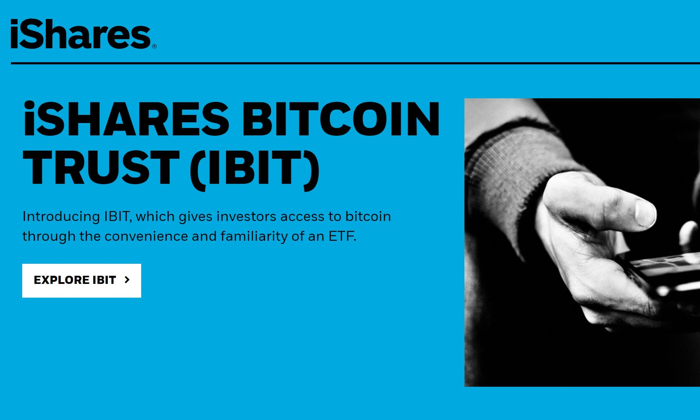In a turbulent economic landscape where stock markets are plummeting due to Trump tariffs, Bitcoin is emerging as a beacon of stability. With over $5 trillion erased from global equity markets since the tariffs were announced, investors are increasingly turning to Bitcoin as a potential hedge against the volatility. The resilience of Bitcoin’s price during this downturn exemplifies its role in a thoughtful Bitcoin investment strategy, as market participants seek refuge from traditional assets. Unlike other commodities, Bitcoin has managed to hold steady, encouraging many to consider its merits as a safeguard during times of uncertainty like a stock market crash. Amid shifting economic policies, Bitcoin’s performance illustrates its potential to not only survive but thrive as skepticism looms over conventional investments.
As equities struggle and investors look for safe havens, the digital currency Bitcoin continues to capture attention as an alternative asset. Amidst the chaos triggered by protective tariffs and resulting economic fear, many view cryptocurrencies, particularly Bitcoin, as viable options for diversifying their portfolios. The appeal of Bitcoin lies in its ability to act as a cryptocurrency hedge against increasing inflation and market downturns, providing a strategic buffer for savvy investors. Following the recent volatility in global markets, Bitcoin’s steady trajectory offers a glimmer of hope for those wary of traditional financial instruments, making it an appealing choice in today’s economic climate. As the dialogue around investment strategies evolves, Bitcoin consistently emerges as a frontrunner, illustrating its growing influence and significance.
The Impact of Trump Tariffs on the Stock Market
Since the announcement of Trump’s tariffs on April 2, 2025, stock markets around the globe have experienced significant turmoil. With over $5 trillion in losses, investors are nervously watching the indices shift dramatically. Economists are suggesting that this economic policy could potentially lead to a recession of unprecedented levels, which has many market participants on edge. This volatility is forcing investors to reconsider their strategies to mitigate risks associated with this unpredictable climate.
In the face of such uncertainty, the impact of Trump’s tariffs is profound. Businesses are bracing for increased costs due to potential retaliatory measures, which in turn could lead to a stock market crash if companies suffer significantly. The performance of the Dow Jones Industrial Average, for instance, has demonstrated a record drop, reinforcing fears that the economic fallout from these tariffs might be more severe than initially anticipated. Investors are now looking for alternatives to ride out this storm.
Why Bitcoin is Emerging as a Safe Haven
Amid the declining stock markets, many investors are viewing Bitcoin as a safe haven asset. With traditional investments experiencing draconian dips, Bitcoin is consistently demonstrating resilience. Unlike traditional stocks that are heavily affected by market sentiment and news cycles such as Trump’s tariffs, Bitcoin has maintained relative stability, being referred to by some financial analysts as ‘the hedge’. The cryptocurrency’s ability to hold value during times of economic turbulence is becoming more attractive as the stock market’s volatility continues.
Moreover, Bitcoin’s historical performance during market downturns suggests that it can be a prudent investment strategy. Analysts state that while the S&P 500 has seen all its gains erased since March 2024, Bitcoin’s value has increased approximately 30% in the same timeframe. This stark contrast showcases Bitcoin’s potential as an investment strategy amidst a chaotic economic backdrop. As recent habits and behaviors shift toward cryptocurrency adoption, Bitcoin’s role in a diversified portfolio appears to be more crucial than ever.
Bitcoin Price Analysis Amid Market Instability
Following the recent market fluctuations, Bitcoin is currently valued at $82,728.46, with only a slight decrease of 0.32% in the past 24 hours. This stability sets it apart from the sinking stock indices, showcasing Bitcoin’s growing dominance in the cryptocurrency market, currently holding a market capitalization of $1.64 trillion. As investors search for stability and potential growth, Bitcoin is increasingly being seen as an alternative investment, especially against the backdrop of tariffs and economic strife.
Investors are also keeping a close eye on the trading volume, which reached $26.75 billion in the last 24 hours. This data reflects sustained interest in Bitcoin, implying that despite economic uncertainties, there is a strong commitment from investors to maintain or build their positions. With a Bitcoin dominance of 61.90% in the crypto market valued at $2.65 trillion, the cryptocurrency appears poised to solidify its position as a leading asset choice during these tumultuous times.
The Role of Bitcoin in a Diversified Investment Strategy
Investors are increasingly recognizing Bitcoin’s role within a diversified investment strategy, especially during periods of stock market volatility. With the ongoing dips in the commodities market and economic predictions uncertain due to Trump’s tariffs, many are questioning the stability of traditional equities. Bitcoin serves not only as a hedge against inflation but also as a hedge against declining stock values, allowing investors to balance their portfolios and potentially capitalize on cryptocurrency’s upward trajectory.
The evolving financial landscape is encouraging investors to look beyond conventional assets; Bitcoin provides an innovative and potentially rewarding alternative. By incorporating Bitcoin into their investment strategies, individuals can hedge against inflation rates that are likely to surge due to tariff-induced economic pressures. As experts suggest, building a meaningful position in Bitcoin could position investors advantageously for the future, making it a key component of modern investment strategies.
Expert Predictions for Bitcoin’s Future Amid Tariff Challenges
As experts evaluate the ongoing economic impact of Trump’s tariffs on global markets, many are making bold predictions about Bitcoin’s future. Analysts suggest that as U.S. equities continue to falter, Bitcoin could emerge as not only a hedge but also a lucrative investment opportunity. The combination of increasing inflation and geopolitical uncertainties may drive more investors toward Bitcoin, yielding significant increases in demand and price over time.
Investment analysts emphasize that those who recognize this shift early may benefit the most. With the current market conditions presenting additional challenges for traditional investments, Bitcoin’s unique characteristics—such as decentralization and limited supply—make it a compelling alternative. If the trend continues, Bitcoin could potentially see an explosive growth trajectory that sets it apart as a new age asset class, resilient against external economic pressures.
Market Dominance of Bitcoin Compared to Other Cryptocurrencies
Bitcoin’s market dominance is steadily becoming more pronounced as traditional markets remain volatile. With its current dominance at 61.90% in the total $2.65 trillion cryptocurrency market, Bitcoin stands as the leading asset in the space. This dominance reflects not just investor confidence but also Bitcoin’s foundational role in the evolution of cryptocurrencies as a whole, improving its outlook as a primary vehicle for investment during times of market distress.
While various altcoins have attempted to gain ground, none have yet to rival Bitcoin’s stability and historical performance. The cryptocurrency’s established history, combined with high trading volumes, suggests that it will continue to lead in investor preference. As long as uncertainty persists in stock markets due to situations like Trump’s tariffs, Bitcoin is poised to maintain and possibly enhance its dominance, serving as an instrumental part of the cryptocurrency ecosystem.
Strategies for Investing in Bitcoin During Market Turbulence
Investing in Bitcoin during market turbulence presents unique opportunities, but it also demands strategic foresight. Investors should consider dollar-cost averaging, a method of investing a fixed amount regularly, which can help mitigate the effects of volatility. Additionally, setting a long-term investment horizon may provide security against short-term market fluctuations, allowing investors to capitalize on Bitcoin’s growth potential in the future.
Furthermore, establishing clear investment goals and risk tolerance is crucial during such uncertain times. As traditional stock investments face downward pressure, Bitcoin may serve as a stabilizing force within a portfolio. Diversifying investments further into sub-assets within the cryptocurrency space can also provide protection against full exposure to downturns while taking advantage of market movements.
Navigating Bitcoin’s Correlation with Traditional Markets
While Bitcoin has shown signs of decoupling from traditional stock market correlations, understanding this relationship is crucial for investors. Historically, Bitcoin was often seen as a speculative asset, moving in tandem with market sentiment. However, recent behavior indicates that during times of crisis, particularly involving Trump’s tariffs, Bitcoin has maintained stability when stocks plummeted, suggesting its potential shift towards a true hedging asset.
Navigating Bitcoin’s correlation with traditional assets can lead to strategic insights for investors. By closely monitoring relational dynamics between Bitcoin and stock indices, one can identify optimal investment periods. The recent market downswings illustrate how Bitcoin can provide not only a safeguard but also avenues for growth when traditional investments are experiencing significant losses. Understanding these trends can effectively enhance investment strategies centered around Bitcoin.
The Future of Bitcoin as Economic Conditions Shift
Looking ahead, the future of Bitcoin appears increasingly bright as economic conditions shift due to Trump’s tariff policies and their global implications. As inflation fears take hold and market volatility escalates, Bitcoin’s potential to act as a buffer against economic uncertainties becomes more appealing to both retail and institutional investors. The combination of Bitcoin’s fixed supply and growing acceptance could enhance its status as a safe harbor in uncertain times.
Additionally, as more corporate and institutional players enter the cryptocurrency market, the infrastructure surrounding Bitcoin is likely to improve, leading to greater trust and efficiency in transactions. This evolution may result in further increases in demand, coupled with a broadening of its utility as an asset class. Economic pressures from tariffs could serve to reinforce Bitcoin’s position, catalyzing further adoption and innovation in the financial technology space.
Frequently Asked Questions
What is the current Bitcoin price amidst market volatility?
As of April 5, 2025, the Bitcoin price is approximately $82,728.46, reflecting a 0.32% decrease over the past 24 hours. Despite significant downturns in the stock market due to Trump’s tariffs, Bitcoin has shown resilience and is maintaining its position.
How do Trump tariffs impact Bitcoin’s value?
While Trump’s tariffs have led to a drastic decline in global stock markets, Bitcoin has emerged as a stable asset. Many investors view Bitcoin as a hedge against the negative effects of economic policies, which is evident as it recorded a slight price gain despite turbulent market conditions.
What is a Bitcoin investment strategy during a stock market crash?
A viable Bitcoin investment strategy during a stock market crash is to view it as a safe haven asset. With Bitcoin’s price maintaining strength amid falling equities, investors might consider increasing their Bitcoin holdings to hedge against inflation and economic uncertainty.
Can Bitcoin act as a hedge during economic downturns?
Yes, Bitcoin has increasingly been seen as a hedge against economic downturns. Its steady performance amid market volatility, particularly during crises like the impact of Trump’s tariffs, reinforces the idea that Bitcoin can provide stability in turbulent times.
What should investors consider when the stock market is crashing and Bitcoin holds steady?
Investors should consider the opportunity to diversify their portfolio with Bitcoin, especially when the stock market is experiencing significant losses. Given Bitcoin’s current trajectory of relative strength, adding Bitcoin could mitigate risk associated with conventional asset classes.
| Point | Details |
|---|---|
| Market Reaction to Tariffs | Global stock markets lost over $5 trillion since Trump’s tariffs were announced. The Dow dropped over 2,200 points in two days. |
| Federal Reserve Response | Trump calls for immediate rate cuts, but Powell prefers a cautious approach focused on inflation. |
| Bitcoin’s Performance | While stocks have tanked, Bitcoin holds steady around $83k, showing resilience and stability. |
| Analyst Commentary | Experts suggest Bitcoin could be a hedge against market instability during economic turmoil. |
| Current Bitcoin Market Data | Bitcoin is ranked #1 by market cap, priced at $82,728.46, with a market cap of $1.64 trillion. |
Summary
Bitcoin stands out as a leading asset during turbulent times in the stock market. As global markets react negatively to President Trump’s tariffs, Bitcoin’s stability offers a contrast, emphasizing its growing appeal as a safe haven. Despite fluctuations, Bitcoin has shown promise, with analysts encouraging investors to consider it as a hedge against economic instability.
Bitcoin, the leading cryptocurrency, is garnering significant attention as traditional stock markets experience turmoil due to Trump’s tariffs. With over $5 trillion wiped from global stock valuations, investors are turning to Bitcoin as a potential hedge against the impending recession that economists fear could follow these aggressive policies. As the stock market crashes, many view a Bitcoin investment strategy as not just viable, but essential for those looking to protect their wealth. The recent stability in Bitcoin price, hovering around $83,000 while equities falter, illustrates its growing divergence from classic market trends. In this high-stakes environment, Bitcoin is more than just an asset; it’s rapidly becoming a critical component of modern investment portfolios in uncertain economic times.
In the world of digital assets, Bitcoin stands out as a robust alternative to traditional financial instruments amidst economic uncertainty. As global markets react to policies like the Trump tariffs, individuals are exploring cryptocurrencies as a safeguard against stock market volatility. This phenomenon highlights the significance of adopting a cryptocurrency investment strategy, where Bitcoin serves not only as a medium of exchange but also as a protective measure. Investors are recognizing that a well-timed shift towards Bitcoin could yield substantial benefits, particularly when conventional assets are under siege. As many financial analysts advocate for including Bitcoin in diversified portfolios, the conversation around this digital currency is growing increasingly relevant.















